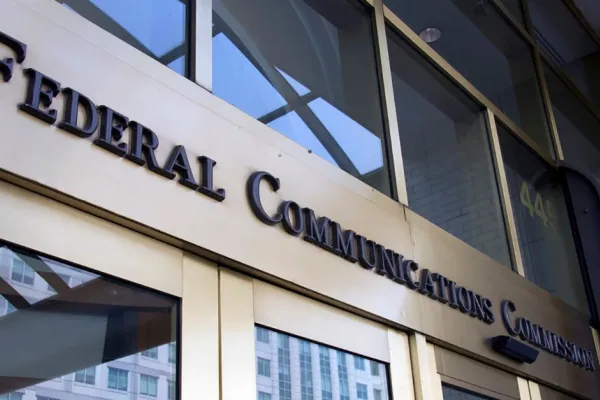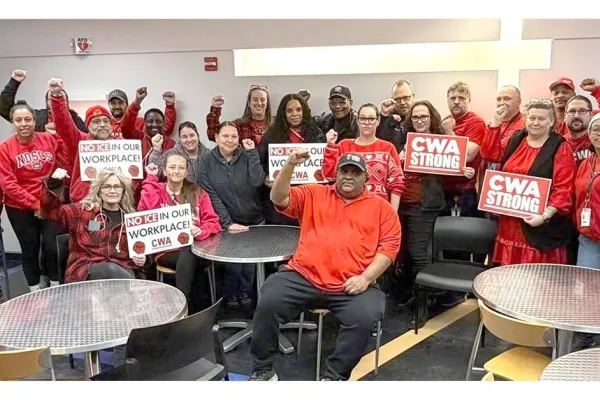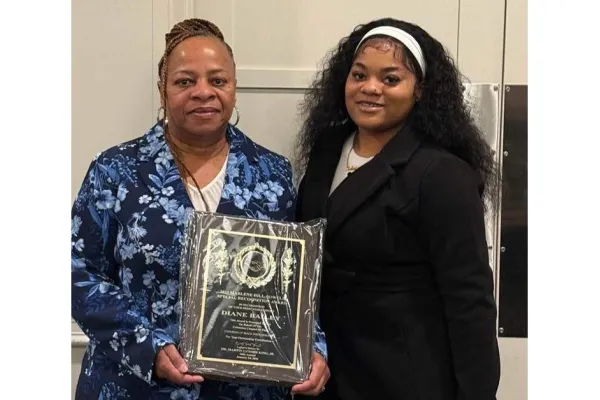The Passing of a Generation---James (Jimmy) Dodson and Why Unity and Unionism Is Important
 I received a call from Jimmy’s son, Mike Dodson, in September, 2014, asking if I would help celebrate his dad’s upcoming 90th birthday by writing a letter from CWA, Local 3907 thanking his dad for his many years of service to the phone company and for his loyal support of the union. I had never met Jimmy when he worked for the phone company and discovered that he had been one of my longtime union brothers. I asked his son for a bit of background information and asked if I could meet with Jimmy for a short interview. Mike agreed and a few days later brought his dad to the union hall where we gave Jimmy a CWA branded T-shirt, CWA ball cap and the framed letter I had written thanking him for his service.
I received a call from Jimmy’s son, Mike Dodson, in September, 2014, asking if I would help celebrate his dad’s upcoming 90th birthday by writing a letter from CWA, Local 3907 thanking his dad for his many years of service to the phone company and for his loyal support of the union. I had never met Jimmy when he worked for the phone company and discovered that he had been one of my longtime union brothers. I asked his son for a bit of background information and asked if I could meet with Jimmy for a short interview. Mike agreed and a few days later brought his dad to the union hall where we gave Jimmy a CWA branded T-shirt, CWA ball cap and the framed letter I had written thanking him for his service.
When I met Jimmy he was just a couple days shy of his birthday. Jimmy entered the front door at a rather brisk pace wielding a cane in his right hand. Jimmy was frail but focused. He exhibited a commanding presence at 6 foot 4 inches and walked with the confidence of a man much younger. He still stood tall and proud, and he yielded his cane more as an accessory than a necessity. Jimmy had just left the doctor’s office to have his arm looked at for a recent fall he had suffered and for a nagging cough. Jimmy, even at his advanced age, still lived alone and unassisted. After his fall, Jimmy had not called anyone for help. He had gotten up, dusted himself off and went about his day. Mike told me his dad was stubborn. During the interview I discovered that Jimmy was much more than just stubborn and proud. Jimmy was a humble patriot, a World War II combat veteran, and had been a loyal and passionate union member for over four decades.
Jimmy was seventeen when he enlisted in the U.S. Navy in October, 1941, a mere two months before the attack on Pearl Harbor. As the country mobilized for war, the Navy assigned Jimmy to serve aboard the U.S.S. Prairie. She was a destroyer tender that served as a floating shipyard. Her charge was repairing a variety of warships often times in the combat zones of the Atlantic and Pacific Ocean. His deployment took him from the frigid waters of Newfoundland, Canada, to the tropical waters of Ulithi Atoll which lies about 360 miles southeast of Guam in the Pacific Ocean. Following Germany’s defeat and surrender, the war effort shifted from a two ocean war to one focused on the defeat of Imperial Japan. This remobilization found the U.S.S. Prairie assigned to the Pacific as the invasion of the Japanese mainland gained momentum. Jimmy discovered that he was to be part of the invasion force and his charge would be piloting Marines ashore in a landing craft. The atom bomb ended the war before Jimmy and hundreds of thousands of soldiers and sailors answered their next call of duty.
 In May, 1942, while serving on board the U.S.S. Prairie in Newfoundland, a fire aboard a tendered ship spread to the Prairie. The flames spread quickly whipped by gale force winds. For five hours seaman Jimmy Dodson and his crewmates battled the intense flames as the fire spread compartment to compartment consuming the ship. Life magazine (September 14, 1942) published an article about the fire and the heroic efforts of her crew. The brave sailors brought the flames under control a mere one compartment away from certain death and destruction of the ship. The next compartment held over 600 tons of high explosives and 103 torpedo warheads. The Prairie also held 12,000 gallons of diesel fuel and over 1,000,000 gallons of fuel oil. What the article in Life failed to note was that the Captain had ordered “abandon ship” well before the crew brought the fire under control.
In May, 1942, while serving on board the U.S.S. Prairie in Newfoundland, a fire aboard a tendered ship spread to the Prairie. The flames spread quickly whipped by gale force winds. For five hours seaman Jimmy Dodson and his crewmates battled the intense flames as the fire spread compartment to compartment consuming the ship. Life magazine (September 14, 1942) published an article about the fire and the heroic efforts of her crew. The brave sailors brought the flames under control a mere one compartment away from certain death and destruction of the ship. The next compartment held over 600 tons of high explosives and 103 torpedo warheads. The Prairie also held 12,000 gallons of diesel fuel and over 1,000,000 gallons of fuel oil. What the article in Life failed to note was that the Captain had ordered “abandon ship” well before the crew brought the fire under control.
Jimmy and his shipmates never heard the Captain’s order to abandon ship as the public announce system had been destroyed by the raging fire. The order never reached the sailors battling the blaze. Jimmy modestly spoke of the inferno and how they would have been “in a mess” had the fire reached the munitions. During his recounting of the battle to extinguish the fire, he never referred to his deeds or himself, it was always in the plural. They (the crew) fought the fire, they would have been “in a mess” had the fire breached the next compartment. This was a raging inferno that threatened the ship and crew. The fire was an enemy that demanded unselfish courage and sacrifice. Jimmy’s commitment was to his country and his crewmates.
Towards the end of the war, Jimmy found himself in the warm tropical waters of the Pacific. While at anchor at Ulithi Atoll, Jimmy and several other sailors were allowed to go ashore on the coral beach of the atoll. It was not much of a shore leave but was a needed reprieve from their wartime duties. While on the beach two Japanese torpedo planes attacked their ships at anchor. One Japanese torpedo plane successfully torpedoed a light cruiser sinking the ship in the shallow waters of the atoll. The second plane misjudged his attack and clipped the antenna mast of the U.S.S. Prairie with his wing and crashed into the surf and coral beach. As Jimmy put it, “The torpedo plane spun to the right crashing on the beach and narrowly missed us. Had it gone the other way, it would have been bad.” Death had once again been at his door step and he dismissed the episode as nothing unusual. Aside from a mouthful of sand and coral when he dove for the beach, Jimmy had escaped what would have been certain death as the war drew to a close.
There was no self-glorification, no praising of his heroics, no bragging. Before me sat a humble man who had witnessed the horrors of war, yet stood firm in his conviction that there was nothing exceptional about him or his story. He was wrong, this was indeed an exceptional man with an exceptional past. Yet, he was correct. He was among the thousands who sacrificed their innocence, their youth, for the good of the country. Jimmy was one of the many men and women who stood together and fought for a better life for their families and communities after the war.
I asked Jimmy about his start with the phone company in 1946. Jimmy told me that he hired on as a lineman after his service in the Navy. He said his starting pay was less than his military pay and that he was living in a boarding house in Mobile, Alabama at the time. He stressed that the starting pay with AT&T was low. They had to provide their own transportation to the job site and had to buy their own tools and hand cart. As a distinguished veteran of World War II, Jimmy had served his country with honor. He and other veterans sought employment with one of the largest, most profitable companies in America…AT&T. Yet, a hostile, anti-union employer’s low wages provided only for a substandard living. A boarding house was the best this combat veteran could afford. And he was not alone. Jimmy and his union brothers and sisters had it rough and they knew it. Their next call to duty would be the picket line and these combat veterans were ready to answer the call.
Jimmy walked the picket line in 1947, 1955, 1968, 1971, and again in 1983. The 1947 strike, by all accounts, was busted by AT&T and the union lost. I asked Jimmy about his first strike. Jimmy looked me straight in the eye with a serious, no nonsense stare and told me that there was no national unity and they went back to work with “only a three cent raise.” He went on to note and added that AT&T had busted the strike. I expected bitterness from Jimmy about the outcome of the failed strike but he quickly added that the 1955 strike brought them “some real money.” “We were organized and united,” he added. Jimmy sat erect with a bit of a smirk on his lips. “What about the other strikes when you walked the picket line?” I asked. “All of them were important…all of them,” Jimmy matter of fact added.
I asked Jimmy if there were many World War II veterans walking the picket line with him in 1947. His short, quick answer was simply, “Yes, there were many of us from the war.” “What do you remember about that strike?” I followed. Without hesitation he reflected on the Mobile police presence at the picket line and that the police had “slap jacks” (described by Jimmy as a short, leather strap used by the police for riot control). “Did you or your other union brothers and sisters experience any violence while on the picket line?” I probed. He offered that while the picket line was peaceful, the police were always present with their “slap jacks.” The police presence was a not so subtle show of force that AT&T could command. Jimmy concluded by simply adding that they walked out united and stayed united during the strike. No one crossed his picket line.
During Jimmy’s long career with the phone company he worked as a lineman, cable splicer and later as a testing technician. He spoke jokingly about the many fine men and women he had the pleasure of working with and walking the picket line with over the years. It is important to note that when Jimmy started in 1946, he had no pension, no benefits, low pay, and little if any workplace safety standards. Jimmy spoke about his time as a cable splicer working manholes and “pot wiping” lead sleeves. The lead sheath splices at the time were closed using molten lead poured onto a cloth rag and “wiped” into the seams and end plates of cable splices. As Jimmy said, “They did not have any real protection from the molten lead. We would wrap our arms in muslin (cotton linen on a roll used to wrap pulp and paper cable) to try to keep the lead from burning our arms. It didn’t work that well,” Jimmy added with a bit of a laugh. I could not help looking at his arms wondering which scars he bore from the molten lead he poured and which might have been from fighting the fire aboard the U.S.S. Prairie.
When Jimmy ended his career in December, 1988, after more than four decades of service, he had witnessed and experienced the power of unionism. Jimmy and so many of his fellow union brothers and sisters had started with wages so low that a common boarding house was their only option. Four decades later when he finished his career, Jimmy had a pension, health insurance, and enjoyed good wages and work place safety standards where injury and maiming were the exception and not the norm. Jimmy and his fellow union brothers and sisters were not given anything by the company. They fought for and stood together for what they believed was a fateful cause; they fought for what would become the middle class. Jimmy not only lived the fight, he fought the fight.
Jimmy’s boots hit the pavement with every strike. He walked in five different strikes during his career with the phone company. His heartfelt commitment to his country and fellow sailors was directly reflected in his commitment to support the strikes. With each  strike Jimmy and his union brothers and sisters locked arms and fought AT&T’s effort to weaken and destroy the union. They walked united demanding a fair wage and benefits not simply for themselves, but for their families. They walked united and refused to give up the fight. AT&T forced the strikes and intended to win the strikes. What they had not counted on was Jimmy and his union brothers and sisters standing united, unyielding in their determination. These World War II veterans refused to give ground and were unwilling to sacrifice what they had gone to war to defend…they were defending an American right, the right to organize and bargain for their fair share. Jimmy and his union brothers and sisters did not pick the fight, but they damned sure were not going to lose the fight. They had fought for freedom before and were now standing for economic justice.
strike Jimmy and his union brothers and sisters locked arms and fought AT&T’s effort to weaken and destroy the union. They walked united demanding a fair wage and benefits not simply for themselves, but for their families. They walked united and refused to give up the fight. AT&T forced the strikes and intended to win the strikes. What they had not counted on was Jimmy and his union brothers and sisters standing united, unyielding in their determination. These World War II veterans refused to give ground and were unwilling to sacrifice what they had gone to war to defend…they were defending an American right, the right to organize and bargain for their fair share. Jimmy and his union brothers and sisters did not pick the fight, but they damned sure were not going to lose the fight. They had fought for freedom before and were now standing for economic justice.
I asked Jimmy about unionism, our younger union workers and if he had a message for them. Jimmy looked me dead in the eye and clearly and unapologetically said, “Don’t let them bust you up. Stand together.” I followed by asking about workers who were not in a union and if he had a message for them. Jimmy’s eyes gave away his concern. He had a puzzled look on his face as if he was thinking ‘who would not be in a union.’ He calmly added “They need to join a union.”
Jimmy was showing signs of fatigue and Mike said that his Dad had been “under the weather” lately with his nagging cough and he was going to get him back home to rest. I concluded the interview and thanked Jimmy for sharing some of his story with me.
The nagging cough that Jimmy had turned out to be late stage lung cancer. I attended his wake two months later. He passed away November 17, 2014, at the age of 90. Jimmy had told me he had a blessed life and a good life. I believed him. At his wake many of my retirees paid their respects to our Union Brother Jimmy. They milled about the parlor laughing about the good times and just as quickly wiping away a tear here and there. These men were not simply friends of Jimmy, these were the men who refused to be “busted up.” These grey haired and balding men had stood shoulder to shoulder with Jimmy on more than one picket line. They paid their dues, they sacrificed not just for their families, but for a movement that they believed in. They stood together when others might have failed.
Jimmy’s legacy is quite simple…he and his generation stood against tyranny abroad and were willing to sacrifice their lives to defend American freedom, our freedom. They answered our country’s call to duty and pledged to serve America with a sense of urgency and purpose. They served with a commitment to God and country. Their wartime service tempered them for their next call of duty. The picket line became their rallying point. The line held because these brothers and sisters refused to cave in to needless corporate demands. This generation of brothers and sisters were not driven by greed. They simply demanded justice.
It was my honor to have met my Union Brother Jimmy Dodson and to share a part of his life and story.
Ken Worthen
President, CWA Local 3907
CWA and Allies File Comments Supporting FCC Oversight of Voice Service in the Internet Age
Legacy T and Activision Members Meet With CWA President Cummings in Minneapolis
CWA Celebrates Dr. Martin Luther King Jr. With the CBTU


